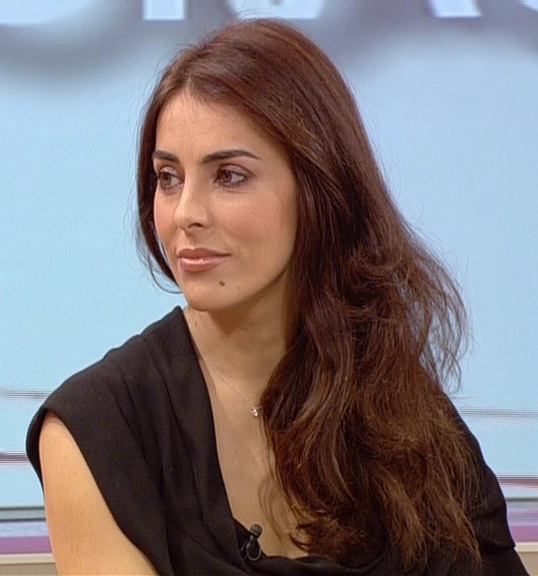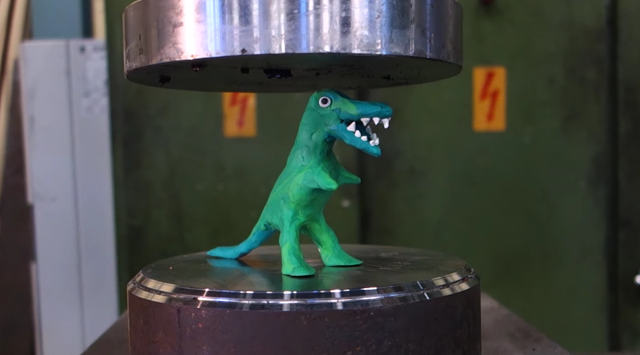THREE TYPE OF PEOPLE
by Marta Czekaj, Poland
People are different. Every person has own story to tell. There are basically three types of people in this world.
Firstly, there are people who are kind - full of goodness, who are grateful for what they have and who help everyone around. Those folks whom you can trust and confide all of your secrets.
The second group are the people who are nasty. These people are horrible, full of hatred. they tend to taunt you on each step of your life.
These people you can't trust.
The third group of people are half kind half evil. Most of people were "third" type. They are okey, but no the best.
I think I'm the first type as well as my friends.
What type of person are you?

Popular People
Michał Szpak born in Jasło (a small town in southern Poland), 26 November in 1990, is a Polish singer who became famousduring the first series of the Polish X Factor in 2011. Szpak represented Poland at the Eurovision Song Contest at the Eurovision Song Contest 2016 in Stockholm, Sweden with the song Color of your Life.
Only to be yourself is the debut studio album by Szpak. Titled as a reflection of his life and the frame of mind at 24 years following the unexpected death of his mother, the album includes 12 songs performed in Polish as well as in English.
Michał Szpak is the favourite artist of most Polish people.

Celebrities known for their charity work
By Rita Silva and Íris Marques, Lamego, Portugal
Some celebrities do not just want to make money. Many prefer to use the attention they get and their fat bank accounts to help those who need it. Actor Orlando Bloom, Brazilian supermodel Gisele Bundchen and British actress Emma Watson are some of those who use some of their time to bring forth some of the discussions necessary for the good of others.
Catarina Furtado
Catarina Furtado, born in Lisbon in 1972, is a Portuguese television presenter, actress and one of the Portuguese most charitable celebs.
Goodwill Ambassador of the United Nations Population Fund (UNFPA) since 2000, Catarina has been working in different countries in the areas of Health, including sexual and reproductive health, Gender Equality, Violence against Women, Discrimination , Male Involvement, Female Genital Mutilation, Safe Maternity, Adolescent Maternity / Parenting, Family Planning, among others.
UNFPA (or UNFPA) is a UN fund dedicated to monitoring the evolution of the world's population and improving the status of women. But one sentence is not enough to define the scope of this fund that will be better understood if you visit the UNFPA website.

SOME PORTUGUESE CELEBRITIES
By Laura Sarmento, Mariana Trigo and Joana Santos

https://issuu.com/cristinaparente2/docs/people
Typical stereotypes
Have you ever heard the sentence that women can’t drive? Or that it must be the guy who propose? The definition of typical stereotypes are preconceived notions. Or more easily told, when you judge people before you get to know them. Here is some typical stereotypes for differentes nations.
Swedish people
The Swedes have blond hair and blue eyes. They are often dumb. Volvo is Sweden’s favorite car and they love to shop at IKEA and Ullared, or other places where it’s cheap. Ice cream and soda is a must in the summer. All the girls are called Ebba or Felicia, and the boys are called Oscar or Åke.
Spanish people
The Spaniards talks really loud and fast. They have brown hair and light brown eyes. They also like to dance and only eat Paella. The family are always their first priority, and they loves to hang out with the family. The Spanish people are always late, and very lazy.
Italian people
The Italians loves pizza and it’s a very important dish for them. They have brown hair and brown eyes. All the boys are called Matheo or Alessandro and the girls are called Angelica or Angelina. They get mad very fast, and easily get offended.
German people
The Germans are really strict and tidy. They are really loud, but also funny. They love food, and are always on time. Germans are really direct, and often talks before they think. They have really dark eyes, and brown hair.
Finnish people:
The Finns are really spoiled, but very happy. The Finnish people loves the cold weather, and dogs. They like to go for a walk, and loves the nature. They also have green eyes, freckles and blond hair. They are really smart, and proud of their nature.
British people:
The British people loves tea. They drink it all the time, and will never get enough. They are just like the Norwegians when it’s about the personal space. They will rather sit and read the newspaper or be at the phone at the buss, than to sit and talk to someone. They like to fix their gardens. They also loves dogs, and are really polite.
Norwegian people:
The Norwegians loves the snow, and skiing. They also loves milk chocolate and the cold weather. They don’t like when it rains, and they are really reserved. An example is if you sit on the bus. They don’t like when people sit on the seat next to them, and if they are going off on the next stop, they are getting ready, so the person beside them should know that they are going off. They hides their emotions in public.
Written by Tuva, 14 years old from Norway
---------------------------
Hydraulic press channel.
Hydraulic press channel is one of the most subscribed channels in Finland, they have over 1,720 million subscribers (24.4.2017). They make videos about pressing everyday items with their hydraulic press. There are 2 people running the channel, Lauri Vuohesilta and his wife Anni Vuohesilta. The channel was created in the October of 2015 but the channel really blew up in November 2016. In 2017 guy named Johannes Linnama made a game with Vuohesilta's about their channel, the game is called Hydraulic press pocket.Here are some of my favourite videos:
https://www.youtube.com/watch?v=5rC42egLl5E
https://www.youtube.com/watch?v=x0fa2ZZpOTA
https://www.youtube.com/watch?v=R0_C80w9wU4
Here is a picture from one of their videos

- Karo Soranko
------------------------------------------------------------
By Leana,13, Norway
Norwegian people
I wanted to write about typical norwegian people and what they do in there spare time. Also i'm going to write about typical names in Norway and which ones are the most popular ones.
Spare Time
Many Norwegians often go skiing and do stuff with their family and sometimes friends. When it's cold outside they often are indoors and are with their close friends and family. Norwegians often eat Taco on Friday and love traditions.
Norwegians often watch the same tv shows every friday because they really enjoy watching them. They often watch the show with their family.
Personal space
Norwegians often like to have personal space. Also when Norwegians sit on the bus they sit alone because they prefer that. Norwegians can work good together with people they know , but it's harder for them to work someone they don't really know.
Names
In Norway we got many different names , but names like Sunniva,Thea and Emma are really popular in Norway for girls. Emil,Gunnar and Noah are also typical names in Norway for boys. After the tv show SKAM(shame)came out the name Nora and William became two of the most popular names last year. Nora and William were some of the main characters in season 2. Many teens watch the show , but also older people like the show.
Society
Norwegian society is very separated. In norway many people snuff. The people who snuff are often around 20 years old.
-Leana
FEMINISM - ANSWERING QUESTIONS!
By Teresa Carrasco Sauri, 14, Spain
Lately, I’ve been witnessing some events that put in evidence something to be a bit ashamed of: people in our social environment don’t know what feminism truly is. This fact tells a lot about our society, so I’m here to answer some of the doubts that you may have, using examples from my everyday life.
The other day, in junior high, we were analysing a quote written in the third person singular, but we needed to know if it was masculine or feminine. Some of the students said it was masculine, and some said it was feminine.
Then, our teacher said that it could also be neutral. We agreed with that, but then he said something he thought had something to do with the topic, but, in fact, was unrelated: “We don’t have to be sexists nor feminists, we have to achieve equality”. Fun fact: in Spanish we have two words to say sexist: sexista, which refers more to the things that tell apart men and women, gender roles, and machista, which means to be someone who shames and oppresses women by making offensive jokes, getting privileged by the social norms; basically, being someone who hates women solely because they’re women. My teacher said the second one.
That quote obviously raised controversy in the classroom. That sentence was clearly wrong. You can’t equate someone who, knowingly or unknowingly, oppresses women, with a feminist, someone who fights for women’s rights to end our oppression. They are very different!
Another day, I was talking to my cousin about feminism and she said: “I support feminism, but some feminists should be called hembristas”.
Do you remember what machista meant? This is the same but the other way around: women being superior to men and shaming them for it.
But the thing is: we live in a patriarchy, a socieconomic system that gives privileges to men over women. We can see this almost everywhere: the wage gap, beauty standards being imposed on women, rape culture… And machismo receives support from this system to use misogyny as a weapon against women. Misogyny exists individually, as misandry (just hating men; it’s the opposite of misogyny).
Maybe there could be hembristas if there was something like a matriarchy to use misandry as a weapon, but there isn’t. We actually live in a patriarchy, and misogyny and misandry don’t have the same weight in our society (I could expand on this, but it would be too lengthy).
Misogyny ends up being machismo thanks to the patriarchy, but misandry doesn’t have the ability to become hembrismo because there’s no matriarchy to support it.
These are a few of the biggests doubts that people tend to have about feminism. Sadly, there are a lot more, and they prevent a lot of people from getting started on feminism. Hopefully, they’ll get eradicated soon, as people will know how to answer them.
(If you have any other doubts about feminism, don’t hesitate to ask me! I’ll try to help you; but, please, be polite!)
-Teresa
libtard